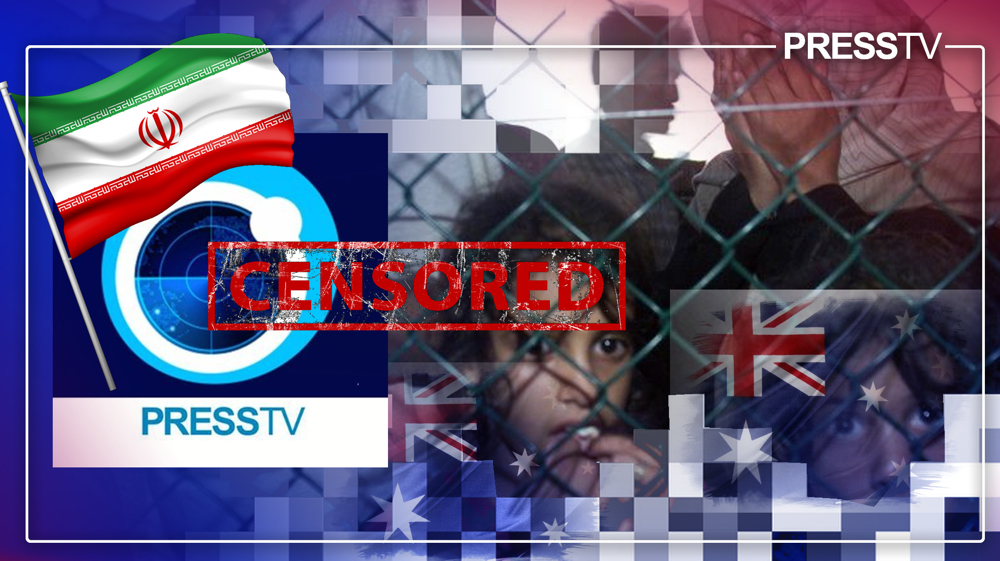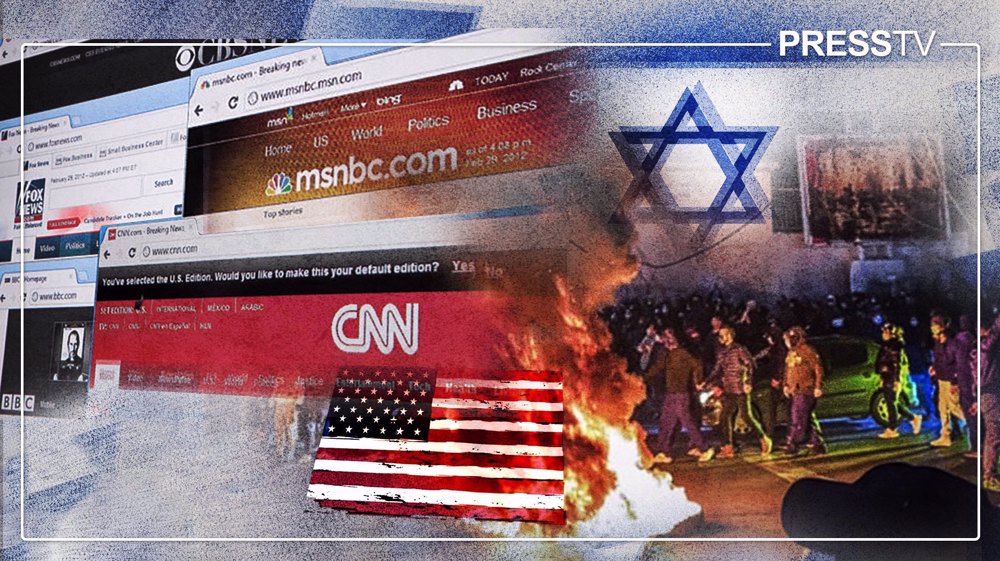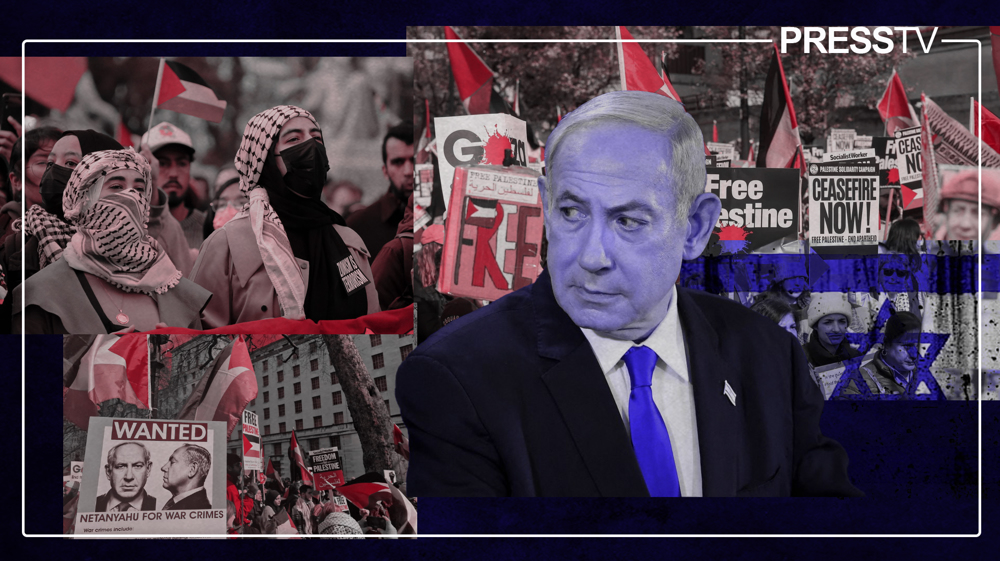Australia, known for Gitmo-style abuse of child prisoners, sanctions Press TV
By Syed Zafar Mehdi
Draconian laws barring the right to peaceful protest. Guantanamo-style abuse of child prisoners. Discrimination against First Nations peoples. Horrendous abuse of asylum seekers.
Still, Australia has the audacity to pour scorn on Iran's human rights record and impose financial sanctions and travel bans on individuals and entities under the smokescreen of human rights.
On Tuesday, the Anthony Albanese government in Australia imposed targeted financial sanctions and travel bans on four Iranian individuals and three entities, accusing them of "oppression of people in Iran, including women and girls."
Australia has already slapped three packages of sanctions against Iran since December 2022 but this is the first time it imposed targeted financial sanctions and travel bans under the so-called "Iran autonomous sanctions framework."
Under the new package, those designated include a spokesman for Iran's law enforcement forces, Iran's cyber police, and Press TV, the Islamic Republic's leading international media network.
Press TV is no stranger to sanctions and other heavy-handed measures aimed at muzzling free speech and media freedom. The network and its office bearers have faced a blizzard of sanctions since last year on various flimsy pretexts.
In November 2022, the US Treasury's Office of Foreign Assets Control (OFAC) imposed sanctions on the network and its parent organization IRIB on the baseless pretext of "forced confessions of Iranian, dual national and international detainees."
The same month, the European Union also quite hysterically jumped the bandwagon and imposed a slew of sanctions on Iranian individuals and entities, including Press TV, with the same obnoxious ruse — "forced confessions of detainees."
In December last year, European satellite operator Eutelsat also called on broadcasters to stop airing Press TV over alleged "forced confessions."
All this came amid deadly riots in Iran, engineered by Western regimes and their hyper-active agencies, following the death of 22-year-old Iranian woman Mahsa Amini while in police custody, completely of natural causes, as attested by medical and forensic reports.
Armed rioters went on a rampage in different Iranian cities, bludgeoning to death young unarmed Basijis and destroying public properties. Many of them were arrested by police and tried in courts, where they confessed to their diabolic crimes, which were also captured by CCTV cameras.
Some of the court sessions were broadcast live on state TV, in which the culprits narrated in graphic detail their heinous crimes and were remorseful. Verdicts against them were announced after due legal processes and multiple appeals.
That's how legal processes work. Nobody is above the law and the rule of law is sacrosanct. But, in the case of Iran, Western regimes and so-called 'human rights watchdogs' bankrolled by them make hue and cry whenever a rioter is dragged to the courts and held accountable for his crimes.
Sanctioning a media organization shows to what extent they can stoop in their no-holds-barred hybrid war against a country that has refused to be subservient to Western hegemonic agendas.
Press TV, which announced its arrival around 16 years ago as a counterweight to Western propagandist media to demolish its flawed narratives and grossly unfair coverage of Iran and the region, has to a great extent been successful.
The network has over the years spoken not only for the Islamic Republic of Iran, which has been at the forefront of the global fight against Western hegemony, but has also told the untold stories of those who have been consigned to oblivion.
That is the primary function of free, independent, and vibrant media — to uphold the truth, prevent the manipulation of facts, unmask the hegemons, and speak for the oppressed, weak and vulnerable.
It has been a thorny path though. Press TV has faced a barrage of sanctions, it has been taken off from satellites, its social media pages have been suspended or deleted, its web domains have been seized, and its office bearers have been slapped with financial sanctions and travel bans.
No one has spoken in its defense, not even those Western "free speech’ advocates who are never tired of harping about the role of media as the purveyor of truth, disseminator of information, custodian of people’s interests, and the forum of political debate.
Now, Australia has also joined this notorious league, the country with a deeply flawed human rights record, known for Guantanamo-style abuse of child prisoners. The list of rights abuses in the country is too long and widely documented.
Barely a few months ago, there was news about a 13-year-old Indigenous Australian boy who spent 45 days in solitary confinement on trivial offenses.
In April, a new damning study by the Immigrant Service at the Royal Children's Hospital Melbourne revealed that children held in Australia's immigration detention centers in the past decade have reported alarmingly high rates of mental health problems.
In November last year, the UN blasted the Australian government for lack of cooperation and open breach of human rights obligations after a team of UN inspectors had to cancel a tour of detention centers where abuse and deaths of Aboriginals had previously been reported.
These are just a few isolated cases that bear powerful testimony to how the Australian authorities have over the years abused human rights with impunity and gotten away with it.
Only on rare occasions has it been reprimanded, like in January 2021 when more than 30 countries at the UN human rights session blasted the country over its horrendous border policies and child detentions thar breach international law.
The issue of offshore processing of refugees and asylum seekers, in particular, has been indicative of Australia's lack of compliance with international humanitarian law. The policy has harmed tens of thousands of vulnerable asylum seekers, with many committing suicides at infamous processing camps in Nauru and Papua New Guinea.
Taking all this into consideration, Australia has no moral high ground to lecture Iran on human rights, and to impose sanctions on a news network that speaks for those harmed by Western regimes.
(The views expressed in this article do not necessarily reflect those of Press TV)
Iran’s Armed Forces will cut off any 'hand of aggression' against Leader: Spokesman
VIDEO | Foreign hands, failed chaos
Russia’s Lavrov condemns Western plots for ‘regime change’ in Iran
‘No natural uprising’: Prominent global voices on US-Israeli role in engineering Iran riots
Trump threatens 200% wine tariffs on France to push Macron to join Gaza board
Yemen’s Saudi-backed PLC slams UAE for running secret prisons; Abu Dhabi denies
Swiss MPs move to strip UEFA of tax-exempt status over failure to ban Israeli teams
VIDEO | Massive Michigan pileup sees over 100 vehicles collide in highway crash










 This makes it easy to access the Press TV website
This makes it easy to access the Press TV website